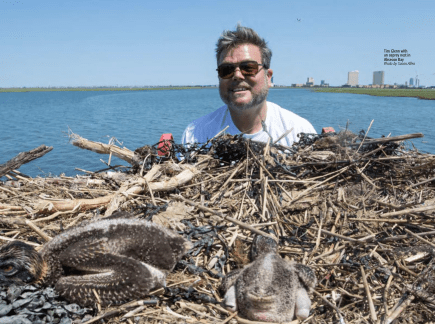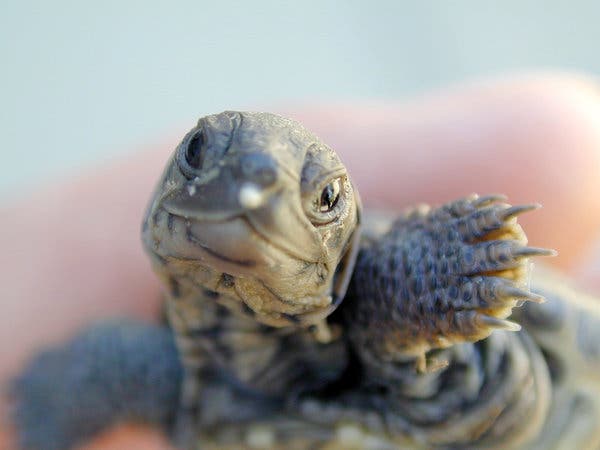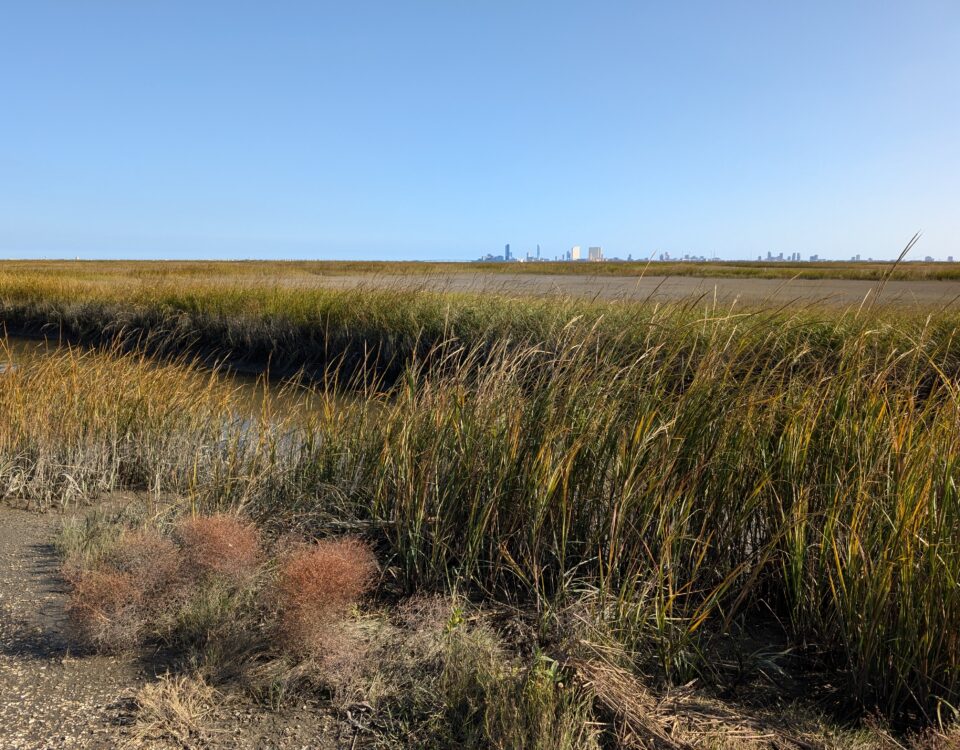The Sharing Economy’s Impact on the Hospitality Industry
December 2, 2019
Tim Glenn: A legacy Of Community Service
December 10, 2019
.jpg)
This article originally appeared in The Sandpaper.
LITTLE EGG HARBOR — It was a good ending to a two-year investigation into illegal trafficking of protected diamondback terrapins, many of them taken from local salt marshes in Little Egg Harbor Township.
On Oct. 18, Stockton University staff and longtime Conserve Wildlife Foundation of New Jersey project manager Ben Wurst released several terrapins back to the Great Bay Wildlife Management salt marsh. The terrapins were illegally collected as breeders for the pet trade. They were confiscated by the U.S. Fish and Wildlife Service in 2018 as the perpetrator attempted to export them through the postal service. Stockton staff cared for them during the investigation, which is now over.
On Aug. 29, David Sommers, 64, of Levittown, Pa. was sentenced to six months in jail, three years supervised release including six months home detention, and $250,000 restitution for trafficking protected turtles.
From November 2011 until October 2017, the defendant poached thousands of protected diamondback terrapins and their eggs from coastal marshes in New Jersey and illegally sold the turtles. A grand jury indicted Sommers on July 10, 2018 for his criminal conduct involving the sale, export and false labeling of packages he tried to send through the postal system that actually contained live turtles. On Feb. 4, 2019, Sommers pleaded guilty to false labeling of packages containing protected diamondback terrapins.
During the sentencing hearing, the government offered evidence that the total market value of the defendant’s sales figures and inventory of poached wildlife was worth well over $550,000.
Much of his illegal collecting occurred inside the Great Bay Wildlife Management Area. The Conserve Wildlife Foundation of New Jersey has been working on a terrapin conservation project on Great Bay Boulevard for a number of years to document and reduce road kills.
More than 3,000 terrapins were seized from Sommers’ property, including the adults that were released last week.
“This was the first time that these adult turtles had felt the warmth of the sun in a very long time, so they were eager to enter the brackish water that they call home,†said Wurst on his Facebook page.
“The defendant had a simple business plan: poach protected turtles and their eggs from their natural habitat, advertise them for sale online and then illegally ship them to customers by concealing the actual contents of the packages,†said U.S. Attorney William M. McSwain in a press release. “Sommers represented himself as a legitimate reptile breeder, when he was in fact endangering the lives of these animals and breaking the law. Thanks to our partners at the New Jersey Division of Fish and Wildlife and the United States Postal Inspection Service, this defendant will be held responsible for his actions.â€
“Sommers used a sham business to shamelessly mask an illegal trade in threatened and protected species,†said Assistant Attorney General Jeffrey Bossert Clark of the U.S. Justice Department’s Environment and Natural Resources Division. “The Justice Department and our law enforcement partners will safeguard our nation’s natural resources and biodiversity, and prosecute wildlife traffickers to the fullest extent of the law.â€
Diamondback terrapins are native to brackish waters in eastern and southern United States but are not found in the wild in Pennsylvania, where Sommers resided, so he traveled to Little Egg Harbor where they have a dwindling habitat range. The terrapins are prized in the reptile pet trade for their unique, diamond-shaped shell markings. The turtles are protected under New Jersey law and by an international treaty, the Convention on International Trade in Endangered Species of Wild Fauna and Flora (CITES).
The United States, Canada, and approximately 180 other countries are signatories to CITES, which provides a mechanism for regulating international trade in species whose continued survival is threatened by such trade. Due to declining populations, CITES listed the diamondback terrapin as threatened in 2013. In 2016, New Jersey outlawed collecting, possessing, and transporting them.
This case was investigated by the U.S. Fish and Wildlife Service, with assistance from the state Division of Fish and Wildlife, and prosecuted by the U.S. Justice Department, Environmental Crimes Section.
Local Conservation Projects
Suffer Setback From Poacher
Wurst’s group of volunteers and the CWFNJ has focused on protecting the terrapins that cross and re-cross the boulevard that runs the length of the wildlife management area. The terrapins use the sandy, gravel edge of the road as their nesting area. They dig a hole and lay their eggs usually between May and August, the same time the road is busy with fishermen and tourists.
Over the past several years, the program has reduced by half the number of terrapins killed by vehicles. “This past year, we had between 30 and 40 road kills,†Wurst said. The group has posted signs and frequently patrols the road, moving the terrapins from one side to the other. Eggs, too, are harvested from nests of those terrapins that have been hit, and hatched in incubators. All this takes a great deal of effort and concern by local citizens.
Said Wurst, “The hard part for all of us who work with these species is we do our best to protect them, but there are always people looking to profit from them. It’s like a punch in the face for our active conservation projects.
“We won’t see the effects right away from what this guy did who poached the eggs from the nests. Right now the population is pretty robust. But hatchlings face a number of threats – from predators to traffic and illegal poaching – and there are trying times ahead with sea level rise.â€
This fall, CWFNJ is partnering with the U.S. Fish and Wildlife Service in a habitat enhancement project that creates a high marsh area on a half-acre of land off Great Bay Boulevard, in the vicinity of the former Rand’s Marina. “It’s a substantial site. And when it’s created, we hope it will be attractive to nesting turtles,†he said.
Besides bringing awareness to the plight of the threatened diamondback terrapin, Wurst and other groups have been participating in ways to identify individuals, such as notching the shells and doing “pit tagging†of microchips, for long-term study.
Wurst said he recently heard from Dr. John Wnek, supervisor of the Marine Academy of Technology and Environmental Sciences (MATES) program based in Manahawkin, that a terrapin that was tagged at Great Bay Boulevard had shown up in a veterinarian’s office in Maine. “Someone purchased a terrapin in a reptile show, and his vet scanned the foot tag,†said Wurst.
Many of the poached terrapins are sold to the pet trade. There is also an illegal trade in terrapins for food in the Asian markets.
“Please remember that terrapins are protected in New Jersey and should never be moved long distances, or taken home to keep as a pet,†added Wurst.

 Get a Quote
Get a Quote
